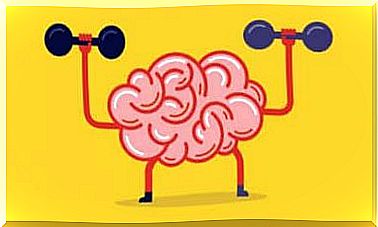Lying: Is It (n)ever Helpful?

When we ask ourselves whether we like to lie, most people say, ‘No, quite the contrary – deceit, in whatever form, I find damn hard to bear’. In general, we regard speaking the truth as a matter of morality: something that everyone should do at all times and everywhere. Behavior that goes against this commandment is a priori condemned as bad and reprehensible. The interesting thing is that – at the same time – we all tell a white lie. The proverbial, euphemistic and oh-so-known ‘white lies’, with which we hypocritically disguise the implicit offensiveness of what we actually say to someone.
What would happen if no one was lying anywhere from today? Suppose you meet a new colleague, and blurt out: ‘God, you are ugly’, or your boss welcomes you at the office with: ‘What an idiot you are, at the first opportunity you are on the street’ . Or you invite someone to dinner at your house, and instead of thanking you for the meal, he sighs out loud, ‘Well, you obviously don’t like your cooking. Rarely have I eaten so tasteless’.
Rather, such mercilessly expressed honesty is known as outrageous rudeness. So, no matter how emphatically we declare that we hate lies, we must admit that the plain truth often does not appeal to us either. In our individual and social social context, countless scenarios are taking place in which lying is not treason in an ethical sense, but rather a way of preemptively neutralizing unnecessary, impending conflict situations.
Is lying – under certain circumstances – allowed?
As is the case with just about all our human, all too human doings , it is ultimately – at the core – not about the act itself, but about its underlying intention. Some people brazenly brag about their absolute honesty and candor, while at the same time confronting everyone with their ‘inevitable’ truth (ie: opinion). Is it really their intention to find and proclaim the (objective or consensual) truth, or do they use it in a sly moralistic way to be able to force their hurtful judgments uncensored on everyone who bothers them or goes against their hair?

Sometimes we lie because we – sincerely – want the best for someone, and want to protect them out of love and good care. One reporter, for example, told of being taken aside by the doctor for the lab results of his elderly, ailing mother: “I’m sorry, it’s pancreatic cancer.” The son urged the doctor not to inform his mother herself, since she was an extreme worry, and that knowledge would only cause her extra stress and (psychological) misery.
The medical specialist – unfortunately – stubbornly stuck to his professional etiquette, and gave the frail old woman the bad news. In no time she had a nervous breakdown, and even died of a heart attack a week later. Hearing the hard truth caused such acute and frantic fear, such intense suffering, that it would have been better—and certainly more compassionate—to spare this frail, extraordinarily sensitive lady her diagnosis.
A lie can therefore only be valued or, on the contrary, denounced, by clearly considering all motives as well as the accompanying practical consequences. If the bona fide intent is to prevent greater evil and mischief, then we don’t necessarily have to strictly obey the moral mandate— thou shalt not lie . In that case it can be defended to give priority to the comparatively more advantageous consequences of our actions, instead of staring blindly at the rule itself . In short: lying is not always objectionable.
Lying out of opportunism
If, on the other hand, you lie deliberately, purely to satisfy your self-centered desires, to force your way or to make a devious profit, then something very different is going on. The lie is used unscrupulously as a means of manipulation: the truth is concealed, falsified or distorted, with the explicit aim of gaining control of the other person or of abusing him (or her) for one’s own gain.

Calculating lies like this only benefit those who ruthlessly shake them up. Rather than avoiding useless suffering, or taking the sting out of emerging conflicts, the hard-hearted lie is pre-eminently to blame. The same is true – albeit to a lesser extent – when you lie for fear of facing the naked truth, or when you don’t dare to take responsibility for something. It makes a difficult situation no longer tenable, nor bearable. It is like a drop of poison in a glass of water, which spreads irrevocably in all directions.
There is also a type of lie that is common even in therapeutic contexts. They are phrases, or catchwords, that people use to reassure themselves, and which they keep repeating in their minds as if it were a form of hypnosis (autosuggestion, is the technical term). For example: ‘I’m fine, and will only get better’, when the observable facts suggest the opposite. Some advertising agencies are fond of this strategy: ‘a lie, heard a thousand times, will become the truth’.
Sometimes we (temporarily) fool ourselves, to get through a difficult period, or simply because the truth seems too overwhelming. The problem with this process is that it can become such an automatism that we are barely aware of it, and we become accustomed to, and entangled in, the web of self-deception.
In other words, under certain specific circumstances, lying can be helpful, but – on the whole – and on the most important matters, truth wins. And don’t forget that lying always has a price. Anyone who convinces a bad chef that his culinary creations are delicious will literally have to keep swallowing that tasteless bite. A less innocent lie may cost you a lot more, and could even herald the end of your relationship.

How do lies affect us?
We live in a society in which every circumstance hides a double meaning. What we are not aware of is the power that lies have over our bodies… Read More









